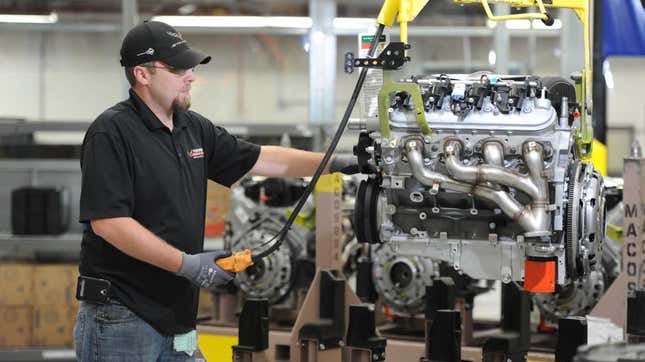
Among the go-to engines for affordable, reliable V8 swaps, you can’t really beat General Motors’ LS small-block engine. You can find the things in everything from Mazda RX-7s to classic Minis. A new video from Auto Guild walks us through an extensive history of the thing and the changes each subsequent generation brought.
Those of you unfamiliar with GM’s small-block line of engines might be surprised to know they actually trace back to the 1950s. But the nice, modern LS everyone loves started in the 1997 model year Corvette. First called the Gen III small block by General Motors, as Super Chevy notes, we know it as the LS1, a 5.7-liter V8 that made 345 horsepower. It was first found in the C5 Corvette, but then appeared in the late F-body Chevy Camaro and Pontiac Firebird later on, though slightly de-tuned.
But, as Auto Guild explains it, the Gen IV is the generation you want. They were more efficient and technologically advanced over the Gen IIIs. Aluminum was more widely used, making these engines much lighter as well. Also, this is the generation that gave us the legendary 7.0-liter LS7 that’s found in the C6 Corvette Z06. I won’t ever pass up an opportunity to give this car a shout-out.
Fast forward to 2014 and we see the introduction of the LT engines in the C7 Corvettes. It marks the beginning of the Gen IV phasing out. Finally, in 2017, the LS engine finally ends production.
Take a look at Auto Guild’s video. He runs through both car and truck engines, so if you’re thinking about an LS swap, this will help you break it all down.
.